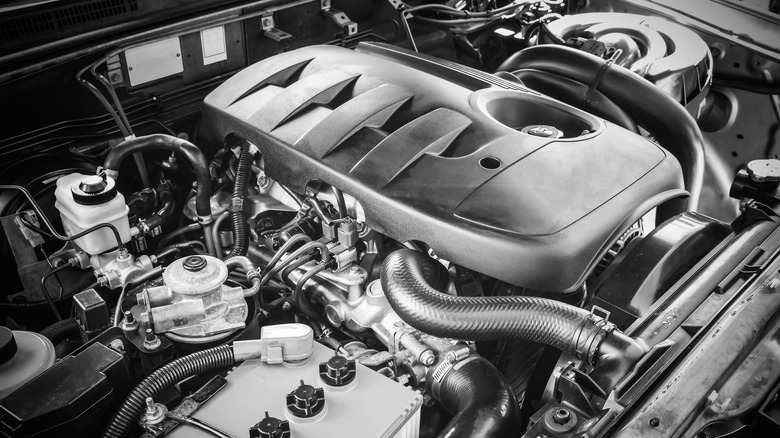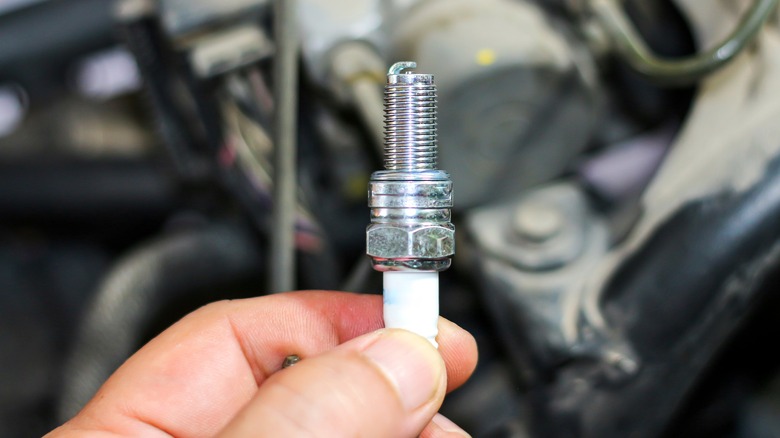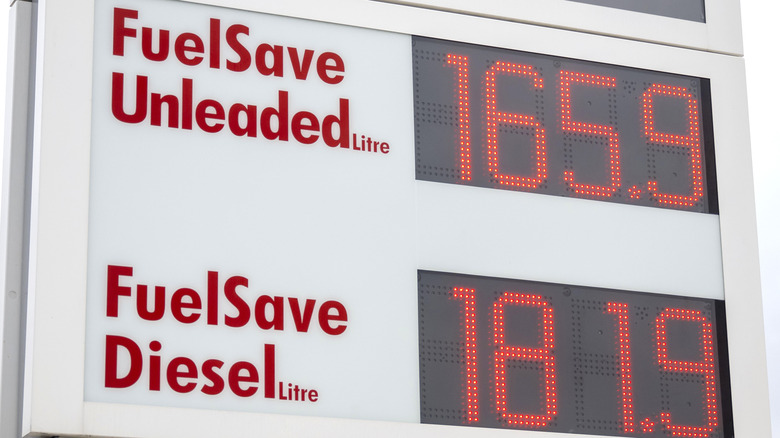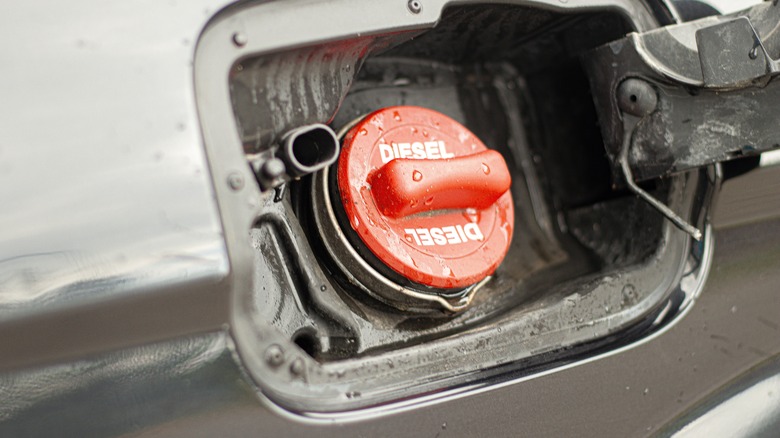
Any certified gearhead knows that diesel engines do not use spark plugs. But why not? If power in an engine is created by combustion or explosion of flammable liquids, won't a spark plug in a diesel engine help
ignite fuel faster and improve its combustion efficiency? The answer lies in the diesel fuel's chemical properties, the way it is ignited, and the spark plug alternative it uses. Before that, let's run through how a diesel engine works.
A modern diesel engine runs on a four-stroke combustion cycle — intake, compression, power, and exhaust. The intake cycle consists of a piston moving down a cylinder, sucking air inside. Then comes the compression stroke wherein the piston moves back up, compressing the air inside the cylinder. This act of compression or putting pressure on the air heats it up to a temperature high enough to ignite diesel. Then diesel is sprayed inside the cylinder where it comes in contact with the superheated air and auto ignites. The resultant ignition causes a mini-explosion that pushes the piston down the cylinder. That's a power stroke. The last (exhaust) cycle moves the piston up and expels the burnt or spent gas out of the cylinder.
Read more: These V6 Engines Put The LS1 V8 To Shame
The Matter Of The Spark

The difference between gasoline and diesel engine cycles is the way air and fuel are mixed and ignited. That said, there are other differences between a gasoline (spark-ignition) and diesel (compression-ignition) engine. In a gasoline engine, air and fuel are mixed before entering the cylinder. During the power stroke, a spark plug inside the cylinder ignites the mixture, causing combustion. A spark plug delivers a precisely timed spark that ignites the air-fuel mixture. Why is a spark plug used in gasoline engines and not diesels? For one, diesel fuel is harder to ignite with an external fire source such as a spark. Instead, it is easier to ignite diesel fuel by introducing it to higher temperatures such as superheated air.
While diesel engines do not use spark plugs, they do use glow plugs, heating elements placed inside a diesel engine cylinder or combustion chamber. They are used to help start diesel engines in cold weather by heating the air inside the cylinder. This is a useful component in a diesel engine, as during cold weather, the air inside the cylinder might not warm to the temperatures needed to ignite the diesel-air mixture even when compressed.
Diesel Vs Gasoline: Chemical Warfare

While diesel and gasoline are petroleum-based fuels, they have different chemical properties. Even diesel engine oil is different from gasoline engine oil. The most important differentiators are their flash points and auto ignition temperatures. The minimum temperature at which a flammable liquid gives off enough vapors to form an ignitable air-fuel mixture is its flash point temperature. Auto ignition temperature is the minimum temperature at which a fuel ignites automatically due to the surrounding air temperature, but without the presence of an ignition source such as a fire or spark. This concept can also cause a diesel engine runaway.
Compared to gasoline, diesel is a more stable fuel. Its flash point temperature, or the temperature at which it gives off vapors, is high at 126 degrees Fahrenheit. This means you will have to hold a match to diesel fuel for a longer time for it to ignite. That's the reason spark plugs won't work in a diesel engine. Compared to gasoline, diesel fuel has a lower auto ignition temperature of 410 degrees. So it is easier to ignite diesel if you heat the air around it to 410 degrees. In a diesel engine, this air is heated by compression. Hence, diesel engines are also called compression engines.
Compression Is Your Friend

The more you compress the air inside a diesel engine cylinder, the hotter it will get before diesel is introduced, and the more efficiently the resultant air-fuel mixture will burn. That's why diesel engines run a higher compression ratio of 14:1 to 25:1. In fact, the higher the compression ratio, the greater the engine's thermal efficiency or the ability to convert the fuel's heat into usable work, like moving the piston down and creating power and torque. A high compression ratio also translates to more torque. That's a reason why diesel engines offer more torque than comparable gasoline engines and offer better fuel economy as well. These are good reasons why modern diesel engines outsell gas engines in heavy-duty trucks.
Modern diesel engines also use fuel injectors that turn diesel fuel from liquid to atomized particles by way of pressure. These injectors spray a precise amount of atomized fuel particles into the combustion chamber or cylinder at high pressure. This allows the atomized fuel particles to be evenly distributed around the cylinder, which helps them burn more efficiently.
Want more like this? Join the Jalopnik newsletter to get the latest auto news sent straight to your inbox...
Read the original article on Jalopnik.












